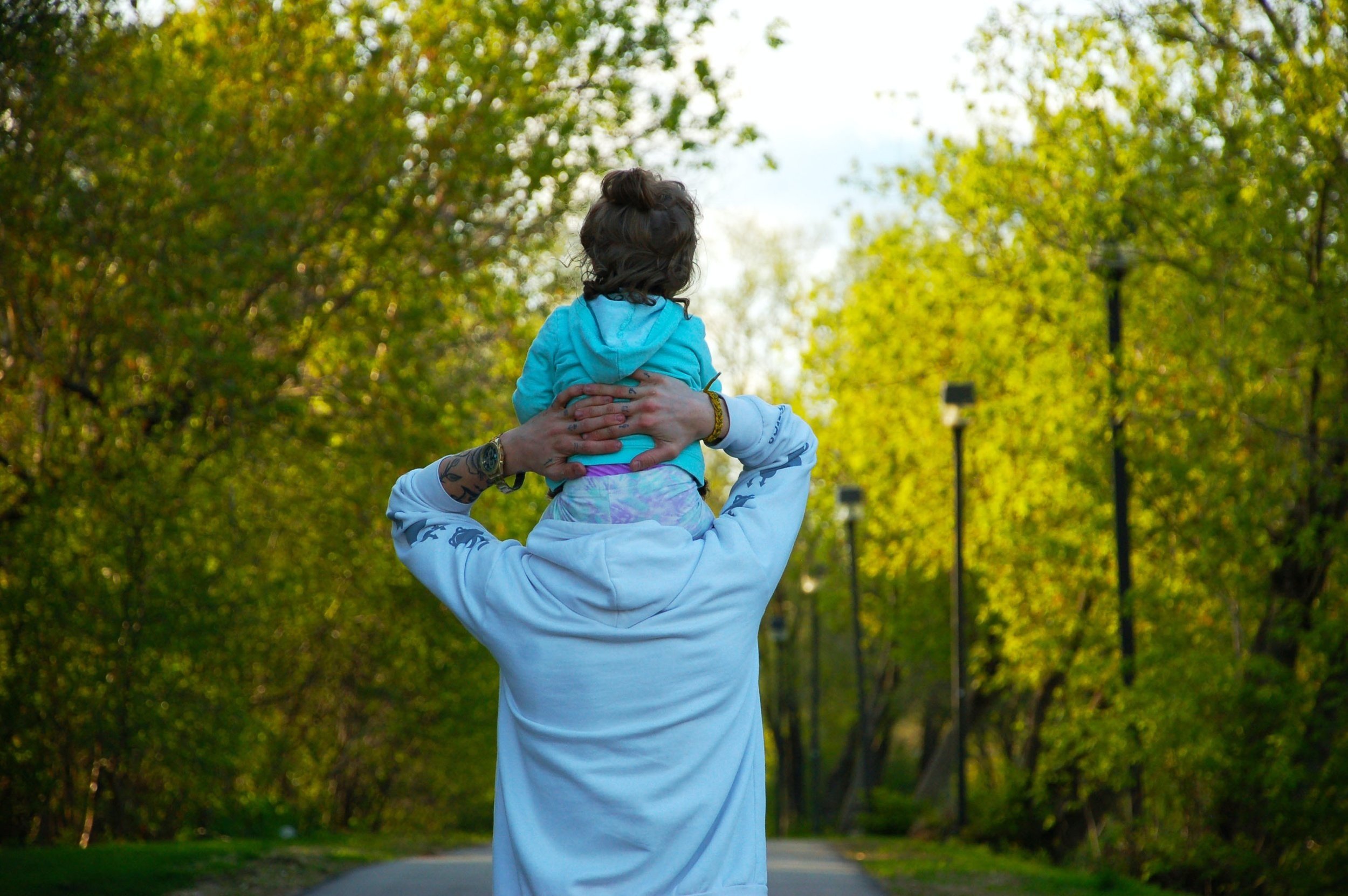Father, Abba, Daddy
by Karla Morton
This coming weekend is Father’s Day. Like Mother’s Day, this, too can be a day of joy or pain for men and women alike. For many women, Mother’s Day is painful if they do not have children or if their relationship with their own mothers was not easy. I believe the same can be said for Father’s Day. For men, it can be the same two-fold pain – not having children or having a painful relationship with their own dads. Sadly, for many of us, the pain causes us to have views of God as Father that are distorted and skewed.
One of the main places in the Bible where we see God as Father is in the New Testament seeing Jesus in relationship with his Father, and in places where Paul refers to God in this way. I think of all the ways Jesus speaks of the Father in the Gospels, especially when Jesus prays in the Garden of Gethsemane:
“My Father, if it is possible, let this cup pass from me; yet not what I want but what you want.” (Matthew 26:39b).
Matthew says he threw himself on the ground in prayer. Prayer is talking to God, and the verses where Jesus is praying to God have been important to me. In the Gospel of John, Jesus does a lot more talking about God as Father to those who oppose him. In chapter 10, verses 14 and 15 Jesus states:
“I am the good shepherd. I know my own and my own know me, just as the Father knows me and I know the Father. And I lay down my life for the sheep.” In verse 25 we read: “Jesus answered, ‘I have told you, and you do not believe. The works that I do in my Father’s name testify to me, …” and in verse 30 Jesus states clearly: “The Father and I are one.”
Later in John, Jesus prays for his disciples, then and now, which shows how deeply we are loved. Of course, most importantly, Jesus teaches the disciples to pray “Our Father…” and that is how we see God as we pray the Lord’s Prayer.
Paul, too, refers to God as Father which then makes us as Christ followers, brothers and sisters. In most of his letters he begins with a blessing of “Grace to you and peace from God our Father”. In Philippians 2: 5-11 we see Paul’s richest description of Jesus’s equality with God so that our image of the Trinity is one that shows each aspect is equal to one another, none is in subordination to any other Person.
Interestingly, many people who go to church, though, have a view of God the Father as an old, grandfatherly man or a father who stands over us ready to spank or slap us any time we mess up! This view of God comes from reading the Bible as “flat” which means that the Old and New Testaments as equally viable in how we follow Jesus as Christians. This point of view, however, is not supported by the writers of the New Testament. In the first chapter of John, it’s very plainly declared:
“In the beginning was the Word [Logos, Message], and the Word was with God, and the Word was God.”
In many places throughout John, Jesus speaks “I am” statements which is his stating that he is equal with the Father. In the letter to the Colossians, Paul writes:
“He [Jesus] is the image of the invisible God, the firstborn of all creation, for in him all things in heaven and on earth were created, thinks visible and invisible, …” (vs. 15-16a).
We also see this in Hebrews where the author opens their letter this way:
“Long ago God spoke to our ancestors in many and various ways by the prophets, but in these last days he has spoken to us by a Son, whom he appointed heir of all things, though whom he also created the worlds. He is the reflection of God’s glory ad the exact imprint of God’s very being, and he sustains all things by his powerful word….” (Hebrews 1:1-3b, emphasis mine)
We see in these verses, and from Jesus’s words, that we need to read the Old Testament, as well as the letters of the New Testament, through the Lens of Jesus in the Gospels. Jesus shows us exactly who God is, and what I know from the teachings and actions of Jesus is that
God is LOVE (I John 4: 16b)
and Jesus shows us what God’s love looks and sounds like. That grandfatherly, old man who is waiting to pounce on you when you mess up is NOT the way Jesus presents God to us.
I began to think about God as Father in my teen years, particularly when I was about 16, almost 17. I had been to a Young Life Camp after my junior year in high school and had asked Jesus to be my Savior (I don’t think I had done this before, but I had attended church most of my life, going on my own with our neighbors in 6th grade).
I had been baptized as a baby and then in the Baptist church I was attending with our neighbors. My parents had divorced when I was seven years old and my relationship with my dad was awkward, at best. So, as I read the Gospels and the stories of Jesus in prayer, his relationship to God as Father – Abba, Daddy – resonated deeply within me. I wanted that relationship with God, I wanted to see God as my Father, too.
After that Young Life camp and starting a more intentional walk with Jesus, I began to see God as my Father and to trust that he was interested in me, in my life, and wanted the best for me – like most fathers want for their children. My relationship with my own father continued to be awkward and strained, but I am thankful that God’s fatherhood has been instrumental in my life of faith in this journey with Jesus.
Eventually in my walk with Jesus, I began to understand his Lordship, which has also shaped my view of God as Father. And, seeing God as Father (I have also embraced the mothering aspects of God, but that’s another story) has shaped how I relate to God – he is one to whom I can go with my struggles, my anxieties, my sadness, times when my faith is weak – and as a Father to me, God comforts, loves, and guides me.
My hope for you, Friend, is that this Father’s Day and all that follow, can be for you a healing time where you begin to see God our Father as the loving God he is. That you will know that God desires to comfort you, guide you, and be gracious unto you! In God’s love may you go out into the world able to love others in the way that God loves you – giving life for you, teaching you, comforting you – and that God’s love will spread beyond you to those you meet wherever you go!
Photo by Chelsey Faucher on Unsplash
Photo by Annie Spratt on Unsplash
Photo by Naassom Azevedo on Unsplash

